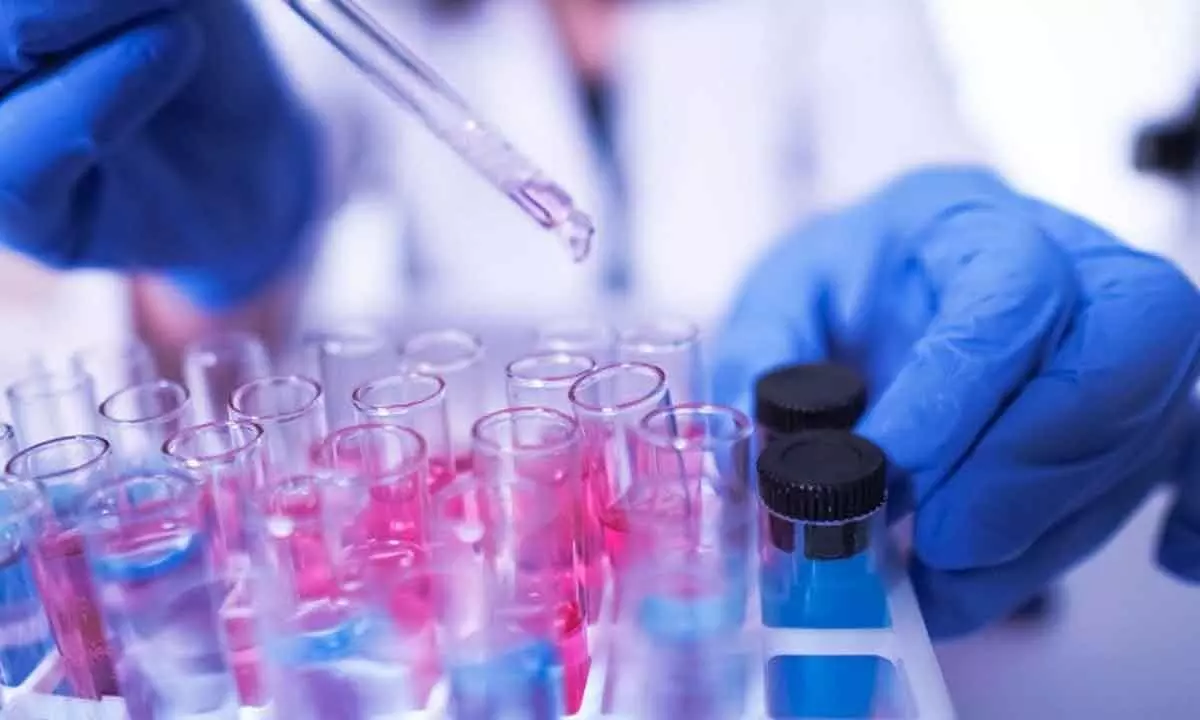IIT research breakthrough can go a long way in fighting the cancer menace
image for illustrative purpose

Cancer has been a leading cause of death worldwide and has accounted for nearly 10 million deaths during the Covid-19, according to the World Health Organization (WHO). In India, the number of cases is expected to rise to 15.7 lakh by 2025 according to ICMR-NCRP 2020. The estimated figure in India for 2022 was found to be 14,61,427. Men and women are mostly inflicted with lung and breast cancers, while children aged up to four years are vulnerable to lymphoid leukaemia (boys: 29.2 per cent and girls 24.2 per cent). With increasing cancer incidences, the demand for enhanced production of anti-cancer drugs has been a compelling need of the hour. In what can be a major boost to produce cancer-treating drugs, researchers from IIT Madras and IIT Mandi have metabolically engineered the plant cells of Nothapodytes nimmoniana to increase the production of Camptothecin, which is used to treat cancer. The researchers from the Plant Cell Technology Lab of the former have developed a genome-scale metabolic model for N. nimmoniana plant cells using computational tools. Camptothecin, the third most in-demand alkaloid, is commercially extracted in India from Nothapodytes nimmoniana, which is an endangered plant.
It is pertinent to recall that in a research paper published in 2021, IIT Madras researchers had identified a microbe as a sustainable and high-yielding alternative source for the plant-derived anti-cancer drug camptothecin. Nearly 1,000 tonnes of plant material is required to extract just one tonne of camptothecin. Significantly, thanks to extensive over-harvesting to meet the market demand its major plant sources are now red-listed as per IUCN (International Union for Conservation of Nature). The N. nimmoniana population has seen more than a 20 per cent decline in the last decade. The research funded by the Science and Engineering Board (SERB) and the Department of Science and Technology (DST), Government of India, suggests that integration of metabolic engineering with bioprocess engineering principles can ensure enhanced and sustainable production of cost-effective camptothecin, to meet the increasing market demand in double-quick time besides ensuring natural resource conservation. It is felt that this platform technology for model-based rational metabolic engineering of plant cells can be adapted to enhance the production of many other high-value phytochemicals, as well.
This study can actually pave the way for effective and efficient commercial production of camptothecin and other medicinally important monoterpene indole alkaloids, with reduced dependence on nature. It is scientifically proven that Camptothecin (CPT) is an important anti-cancer drug lead molecule for high-value drugs like Topotecan and Irinotecan. It is a potent topoisomerase I inhibitor, extracted mainly from - Camptotheca acuminata (native to Eastern Asia) and Nothapodytes nimmoniana (native to India). However, the conjunction of climate change and extensive deforestation undertaken for CPT extraction has pushed the plants into the endangered species category. Quite significantly, India ranked third after China and the US. GLOBOCAN predicted that cancer cases in India would increase to 2.08 million, accounting for a rise of 57.5 per cent in 2040 from 2020. Given this, such a research by an academic institute of IIT’s stature will certainly go a long way in fighting this menace.

